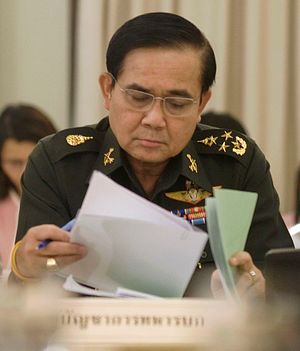Last week, reports surfaced that Thailand’s military could postpone key military procurements amid the fallout from the coronavirus. While the reports are far from surprising, they nonetheless spotlighted how COVID-19 could affect future military planning for some of Southeast Asia’s countries.
As I have observed before, while it is still too early to assess the exact geopolitical impacts of COVID-19 on Southeast Asian states, among the areas that are likely to be impacted is defense planning, whether it be a recalibration of the mix of security challenges these states face, effects on readiness due to cancelations on military exercises, or delays in military procurement.
Last week, we saw some indications of this playing out with reports in Thailand, which is Southeast Asia’s second largest economy. Most prominently, Thai media outlets cited comments by defense ministry spokesman Kongcheep Tantravanich on April 8 that Thailand was considering potentially postponing some military procurements in the wake of the economic fallout expected from the coronavirus.
In comments that were reported across several Thai media outlets, Kongcheep said that the Thai defense ministry was in the process of reevaluating its future procurement needs. “If we think it is necessary to postpone program to future years, we will postpone it so that it doesn’t affect contracts with foreign suppliers,” he said. “This is something we need to talk through, but I think other countries are experiencing similar effects and they will understand what is necessary,” he added.
Kongcheep’s comments come as no surprise: having to reevaluate future defense procurements, particularly high-cost line items that have been budgeted across several years, is a natural consequence of the expected economic fallout from COVID-19. Separately, the Thai air force, navy, and army chiefs have all indicated separately that they are looking at cutting not only procurement programs, but also other engagements including training and overseas tours.
But such comments are not without significance. They suggest that big purchase decisions may face delays over the course of several years, with comments from officials that they are looking not only at expenditure in 2020 but to future years such as 2021 as well. They also imply that there could be effects for Thailand’s military, including on capabilities and readiness.
Unsurprisingly, few details have been provided so far about what specific programs might be affected. And furthermore, the Thai government is also constrained by several factors as it seeks to institute any cuts, including existing contractual obligations and security needs. As such, how exactly this will translate into effects on Thailand’s future defense plans more specifically will be important to watch in the months to come.

































